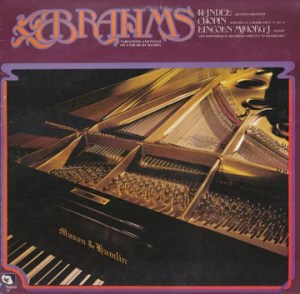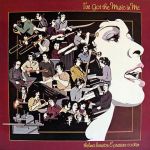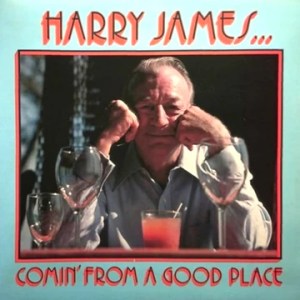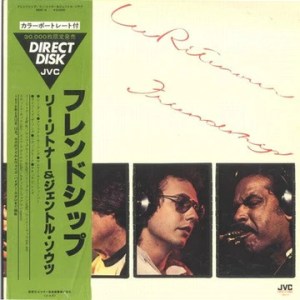 Audiophile Quality Pressings of Orchestral Music Available Now
Audiophile Quality Pressings of Orchestral Music Available Now
Well Recorded Classical Albums from The Core Collection Available Now
Whether made by Klavier or any other label, starting at some point in the mid-90s, many Heavy Vinyl pressings started to have a shortcoming that nowadays we find insufferable: they are just too damn smooth.
Smeary, thick, dull, opaque, and lacking in ambience, this record has all the hallmarks of the modern Heavy Vinyl reissue.
The sound is smeary, thick and opaque because, among other things, the record was mastered by Doug Sax from a copy tape, and not all that well either.
It is yet another murky audiophile piece of trash from the mastering lathe of the formerly brilliant Doug Sax. He used to cut the best sounding records in the world. Then he started working for Analogue Productions and never cut a good record again as far as I know.
On this record, in Doug’s defense it’s only fair to point out that he had dub tapes to work with, which is neither here nor there as these pressings are not worth the dime’s worth of vinyl used to make them.
Maybe the hearing-challenged Chad Kassem wanted this sound — almost all his remastered titles have the same faults as this Klavier — and simply asked that Doug cut it to sound real good like analog spossed to sound in the mind of this kingpin, which meant smooth, fat, thick and smeary.
Yes, this is exactly what some folks think analog should sound like.
Just ask whoever mastered the Beatles records in 2014. Somebody boosted the bass and smoothed out the upper midrange, and I don’t think they did that by accident. They actually thought it was good idea.
Harry Moss obviously would not have agreed, but he’s not around anymore to do the job right.
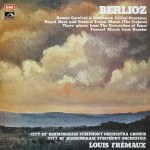
Here is the cover for the real EMI. No idea if the sound is any good, but it has to be better than the awful Klavier, doesn’t it?
Below are some thoughts from a recent classical listing that we hope will shed some light on our longstanding aversion to the sound of these modern remastered records.
What is lost in these newly remastered recordings? Lots of things, but the most obvious and bothersome is transparency.
Modern records are just so damn opaque.
We can’s stand that sound. It drives us crazy. Important musical information — the kind we hear on even second-rate regular pressings — is simply nowhere to be found.
That audiophiles as a whole — including those that pass themselves off as the champions of analog in the audio press — do not notice these failings does not speak well for either their equipment or their critical listening skills.
It is our contention that no one alive today makes records that sound as good as the ones we sell. Once you hear our Hot Stamper pressing, those 180 gram records you own may never sound right to you again. They sure don’t sound right to us, but we are in the enviable position of being able to play the best properly cleaned older pressings (reissues included) side by side with the new ones, where the faults of the current reissues become much more recognizable, even obvious. When you can hear them that way, head to head, there really is no comparison.
(more…)
